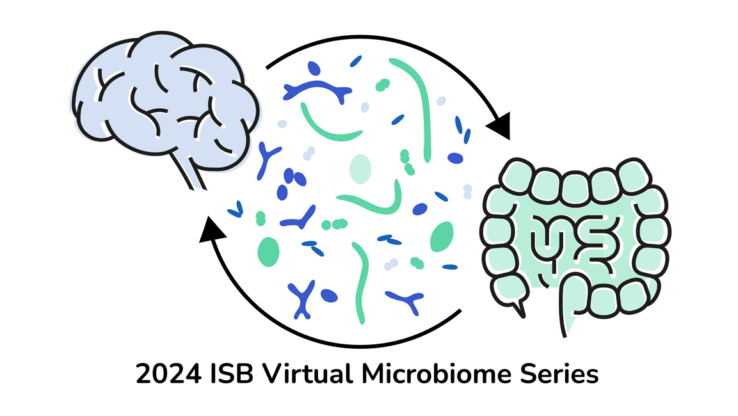Gibbons Lab Awarded NIH R01 to Explore Precision Nutrition
 gibbons.isbscience.org/news/2022/08/20/gibbons-lab-awarded-r01-to-explore-precision-nutrition/
gibbons.isbscience.org/news/2022/08/20/gibbons-lab-awarded-r01-to-explore-precision-nutrition/
The ecological structure of the human gut microbiome helps determine nutritional and phenotypic responses to diet. However, a clear mapping does not yet exist between diet, gut microbial ecology, gut microbial community metabolism, and human metabolic phenotypes. This proposal, entitled “CyberGut: towards personalized human-microbiome metabolic modeling for precision health and nutrition“, provides five years of funding from the National Institutes of Health (NIH) for the design and testing of an integrated host-microbiome-diet metabolic model for rapidly and accurately predicting personalized responses to dietary inputs.
We propose the integration of tissue-resolved metabolic models of relevant host tissues, including a cell-type-specific metabolic reconstruction of the gut epithelium, into our existing microbial community model (i.e., MICOM) to improve estimates of metabolic fluxes between the gut microbiota, the diet, and the host. We will call this host-diet-microbiome metabolic model ‘CyberGut.’ Using existing multi-omic data from a cohort of >3,000 adults, we will constrain and validate CyberGut with paired measurements of diet, host blood metabolomes, and gut microbiomes. In addition, we will generate cross-sectional training and validation data consisting of paired blood and fecal metabolomes, fecal microbiomes, and detailed 3-day dietary recall data from a new cohort of 100 healthy participants. Using these data, we will refine and test two novel and independent diet-inference algorithms, which leverage stool metagenomes and stool untargeted metabolomes, respectively. Furthermore, using samples taken from a subset of this new cohort (N=40), we will perform ex vivo stool culturing experiments, designed to directly quantify metabolic fluxes and bacterial growth rates in vitro. These fluxomic data will be used to directly test in silico CyberGut flux predictions in response to a diverse panel of dietary and host metabolite interventions. In addition to contributing to the refinement and testing of our CyberGut model, the paired diet, microbiome, and metabolomic data, including replicate fluxomic assays, generated in this proposal will be an invaluable resource to the precision nutrition and human microbiome research community. In summary, we will build, refine, and test a novel platform for tracking dietary intake and predicting personalized nutritional responses to diet, which has the potential to fundamentally alter how we design and test dietary interventions.
This work will be carried out in collaboration with Dr. Johanna Lampe (co-Investigator) at the Fred Hutchinson Cancer Center and Dr. Pieter Dorrestein (co-Investigator) at UCSD.





